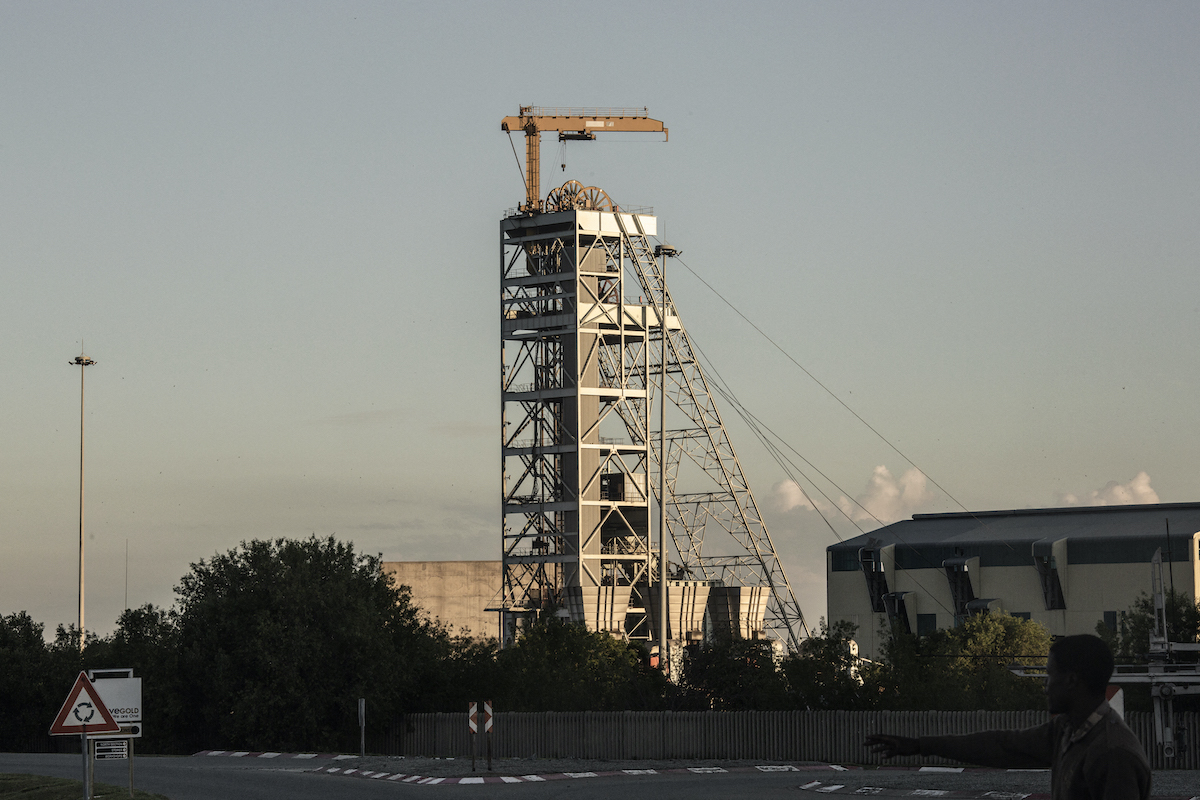Over the last five years, a growing global movement has made considerable efforts to address key issues related to environmental, social and governance (ESG) factors in various industries. Historically, ESG considerations have been ignored because unethical firms preferred to externalise social and environmental costs, and deterrents against such behaviour were insufficient. This led to widescale environmental degradation and the abuse of human rights.
Due to growing external pressures, businesses are being compelled to integrate ESG principles into day-to-day business operations and into their long-term investment strategies. Among these external pressures are increasing climate change concerns, issues of diversity and inclusion in the workplace, and overall corporate responsibility.

Beatrix gold mine shaft number 3 in Theunissen in the Free State, South Africa. Photo: AFP
While ESG factors have affected a general range of industries, the extractives industry, in particular, has deep and unique environmental, social and governance risks that can no longer be ignored. A recent study by the Responsible Mining Foundation (RMF) assessed that ESG due diligence systems within the extractives industry are typically more concentrated on identifying ESG risks than on managing these risks.
Pockets of progress against the backdrop of non-compliance
Despite the RMF findings, elements of the global extractive industries have shown some commitment to tackle ESG risks and attempt to integrate ESG principles into their business or investment strategy. For instance, the Eurasian Resource Group (ERG), a Luxembourg-headquartered mining company, has established a dedicated ESG committee to incorporate sustainability practices into decision-making processes. These sustainable practices will include the use of renewable energy sources and responsible sourcing of materials for the energy transition. The committee will be tasked with ESG goal-setting and reporting to ensure accountability. Evidently, corporate commitments to ESG issues are becoming increasingly mainstreamed.
While significant efforts are being made to integrate ESG factors into the extractives industry, past commitments have not yet translated into systematic measures that are universally effective and reliable. For instance, Zimbabwe’s mining sector is plagued by illicit financial flows (IFFs). IFF’s are estimated to have cost the country $3 billion a year over the past decade, much of which is attributable to illegal mining activity and the smuggling of gold and diamonds. However, there has been limited intervention to effectively address the growing challenge and associated risks related to illicit financial flows in Zimbabwe. This is largely because IFFs are enabled by dubious partnerships between local and foreign companies which have poor ethical standards. Therefore, the adoption of ESG principles requires both governments and companies, respectively, to be on board in addressing the issues.
The RMF study, based on publicly available information, covered ESG measures relating to companies’ supply chains. In particular, it examined human rights, corporate governance, financial flows, and the environment. A sample of 25 companies was selected in the extractive commodity trading space including publicly listed and private companies, as well as state-owned enterprises (SOEs). The evidence shows that most companies assessed chose not to disclose information on the payments they have made to governments and SOEs for the purchase of the state’s share of production. This information is of key public interest because of the importance of extractive revenues for many resource-rich countries in meeting socio-economic development goals.
This is precisely why the Extractive Industries Transparency Initiative (EITI), a tool designed to improve and promote transparency in the extractive industries, should be utilised more effectively in this regard, and be fully integrated into the ESG ambit. Though the implementation of the EITI requires improvement, particularly in the area of accountability mechanisms, its comprehensive reporting guidelines and standards can be utilised to achieve transparency in the industry.
While there is now a plethora of ESG frameworks to assist with assessing ESG performance in the extractives industry, the RMF research mentioned above found that ESG due diligence systems are limited. Too many extractive companies fail to identify and manage risks in their operating environments, such as human rights abuses, illicit financial flows, and environmental impacts. One major shortcoming is a general lack of formal systems within companies to ensure supplier compliance with ESG-related standards. Such systems would entail robust engagements with suppliers or commissioning third-party audits of high-risk suppliers.
Class action in the DRC – a cautionary tale
For example, looking back, International Rights Advocates (IRA) (2019) brought a class-action lawsuit against Apple, Google, Dell, Microsoft and Tesla in December 2019 over child labour in cobalt mining in the Democratic Republic of Congo. The IRA promotes human rights and accountability through legal advocacy and capacity building. The organisation claimed that the technology companies “aided and abetted” a supply chain for cobalt, used in smartphones and electric vehicles, that forces children to work in dangerous mining conditions. This resulted in the deaths of Congolese children. The IRA represented 14 affected families.
The companies in question collectively dismissed the child labour lawsuit, claiming that they have no control over mining companies and the conditions associated with the resource extraction in question. Moreover, they argued that their global supply chains did not fall under the scope of the Trafficking Victims Protections Reauthorisation Act. This is a matter of inadequate supplier due diligence and a lack of requisite knowledge of the contexts in which the mineral ingredients for companies’ products are extracted. A case of this nature questions the effectiveness of ESG integration in companies’ day-to-day operations and long-term investment strategies. With robust due diligence processes that aim to address ESG challenges explicitly, reputational damage and negative financial implications could be avoided.
The positive ripple effect of ESG engagement
Evidently, having a robust ESG due diligence process in the extractives industry is complex but critical. All mining companies should strive for continuous improvement in the management of ESG issues. This is where the real impact and potential for sustainable development reside – in addressing ESG issues more proactively. Moreover, the expansion of the social and governance dimensions of ESG frameworks will enable companies to go beyond focusing disproportionately on environmental impacts and to manage equally important social and governance risks both within the company and in the broader operating context. This will require comprehensive assessments of evolving and complex ESG risks. But the reward is that ESG-cognitive investment and operational strategies will result in appropriate and meaningful long-term returns for firms, states and citizens.
Busisipho Siyobi is the Programme Head of the Natural Resource Governance Programme at GGA. Prior to joining GGA, she headed up the Corporate Intelligence Monitor desk at S-RM Intelligence and Risk Consulting. Busisipho holds an MPhil in Public Policy and Administration from the University of Cape Town with a research focus on CSR within the South African mining industry. During her Masters, she worked as a research scholar at the South African Institute of International Affairs.








